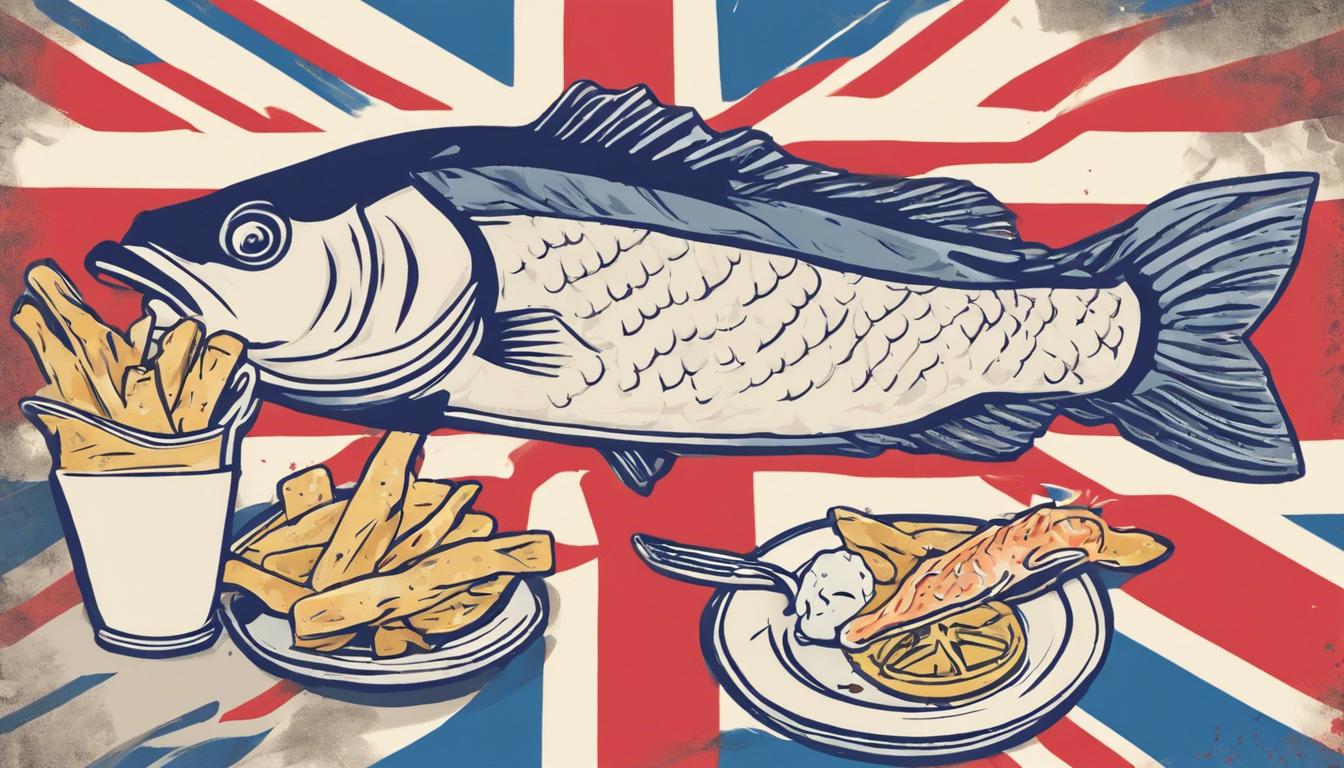The Golden Chippy’s Union flag mural becomes a point of contention with Greenwich Council, highlighting the broader issues of creativity versus regulation and the ongoing critique of UK political leadership.
In Greenwich, London, the owner of The Golden Chippy, Chris Kanizi, has been instructed by the local council to remove a Union flag mural painted on his restaurant’s wall. The artwork, depicting a cartoon fish alongside the British flag and the words “A Great British Meal,” was deemed by the council as an unauthorized advertisement. The mural had become a beloved feature for patrons and passersby, often serving as a backdrop for photos.
Kanizi, who has operated the award-winning fish and chip shop for two decades, expressed regret over the council’s decision, indicating his intention behind the mural was to spread joy. Despite this, Kanizi has shown willingness to comply, stating he would cover the mural if required. This incident comes after a previous dispute in 2016 when Kanizi was asked to remove a large sign following council objections, even after gathering 3,000 signatures in support.
Greenwich Council has indicated a preference for negotiation before resorting to formal enforcement action, aiming for resolution in alignment with local regulations. The Golden Chippy, highly regarded with a five-star TripAdvisor rating and named the top-rated London restaurant in 2016, finds itself at the heart of a discussion balancing creative expression and the adherence to municipal guidelines.
In a separate context, UK Prime Minister Rishi Sunak has been featured in a cartoon by Chris Riddell for The Observer, which critiques his leadership and connections, including ties to Frank Hester. The illustration humorously positions Sunak amidst controversies and political affiliations that question his competence as a leader. This artistic representation contributes to the broader dialogue concerning Sunak’s effectiveness and the challenges he faces.
These events underscore ongoing debates about the tension between individual expression and regulatory compliance and the scrutiny of political leadership in the UK, reflecting diverse perspectives in the public sphere.













